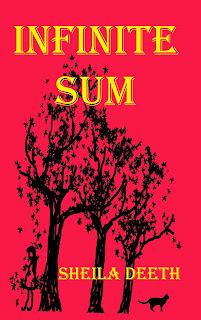Time flies like an arrow perhaps?

It's one of those favorite remembered misunderstandings--the child who stares at flies, watch in one hand and plastic-tipped arrow in the other, obeying an edict that was meant to be an observation: Time flies like an arrow. But this week time has truly flown. I had great plans of books to read, and instead I filled the hours with efforts to fulfill the promise of good news. Good news number one was an email asking for copies of Dribble-IT . Currently only available from Lulu, the price is fine for purchasing online, but I'm not sure what price I can afford to sell it at. I'd long intended to add the book to Createspace, so now, at last, I did it--well, I nearly did it; watch this space and I'll give you the link when the files are finally done. Good news number two was an email from my publisher with a tentative cover image and interior files for my next novel: Infinite Sum. So hours were spent re-reading the interior file, checking for errors of writing or forma...
